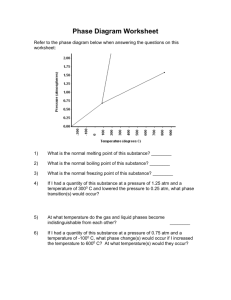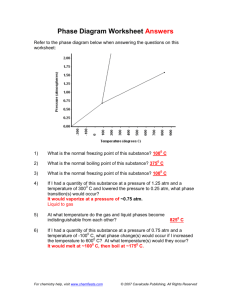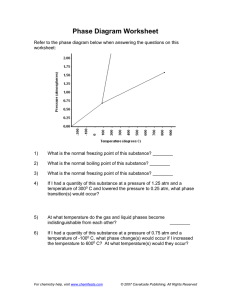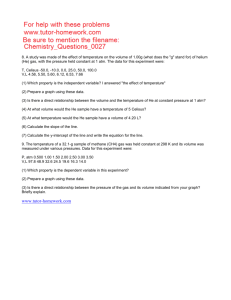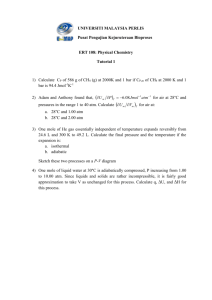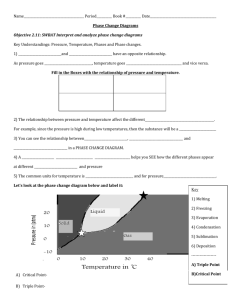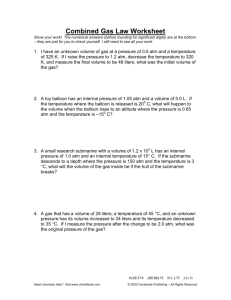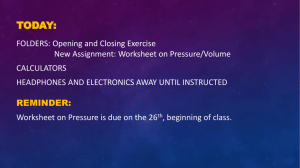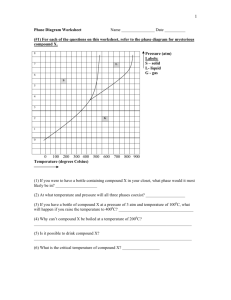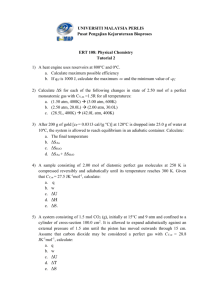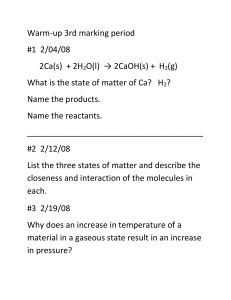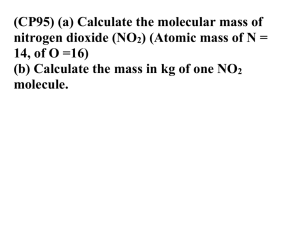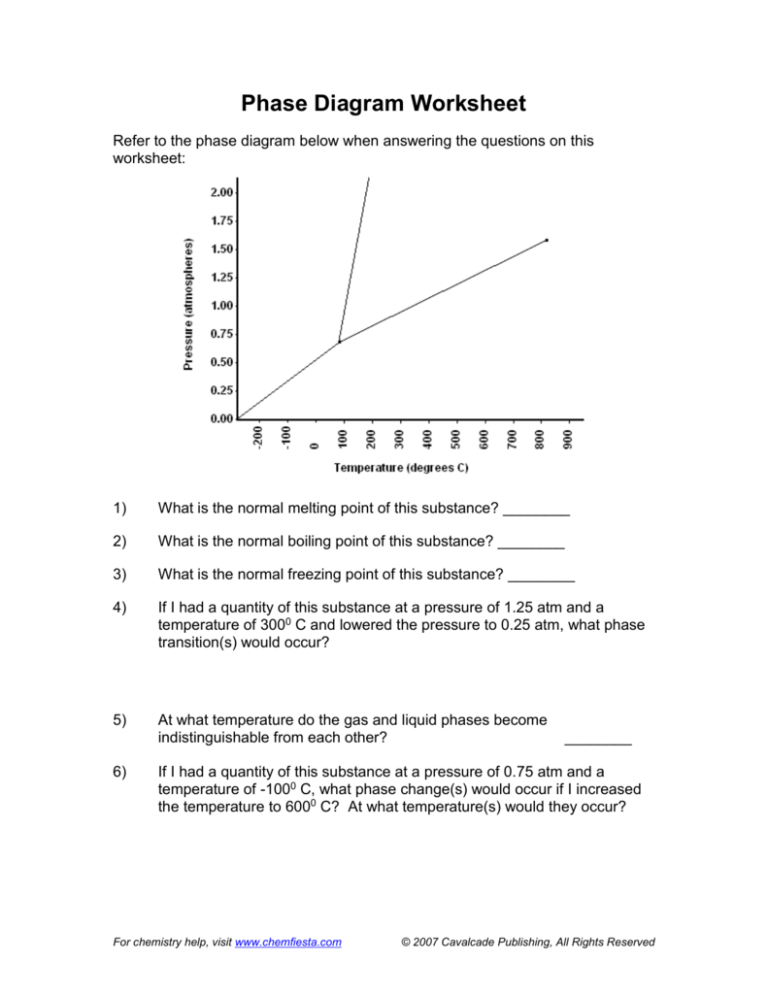
Phase Diagram Worksheet
Refer to the phase diagram below when answering the questions on this
worksheet:
1)
What is the normal melting point of this substance? ________
2)
What is the normal boiling point of this substance? ________
3)
What is the normal freezing point of this substance? ________
4)
If I had a quantity of this substance at a pressure of 1.25 atm and a
temperature of 3000 C and lowered the pressure to 0.25 atm, what phase
transition(s) would occur?
5)
At what temperature do the gas and liquid phases become
indistinguishable from each other?
6)
________
If I had a quantity of this substance at a pressure of 0.75 atm and a
temperature of -1000 C, what phase change(s) would occur if I increased
the temperature to 6000 C? At what temperature(s) would they occur?
For chemistry help, visit www.chemfiesta.com
© 2007 Cavalcade Publishing, All Rights Reserved
Phase Diagram Worksheet Answers
Refer to the phase diagram below when answering the questions on this
worksheet:
1)
What is the normal melting point of this substance? 1000 C
2)
What is the normal boiling point of this substance? 3750 C
3)
What is the normal freezing point of this substance? 1000 C
4)
If I had a quantity of this substance at a pressure of 1.25 atm and a
temperature of 3000 C and lowered the pressure to 0.25 atm, what phase
transition(s) would occur?
It would vaporize at a pressure of ~0.75 atm.
Liquid to gas
5)
At what temperature do the gas and liquid phases become
indistinguishable from each other?
6)
8250 C
If I had a quantity of this substance at a pressure of 0.75 atm and a
temperature of -1000 C, what phase change(s) would occur if I increased
the temperature to 6000 C? At what temperature(s) would they occur?
It would melt at ~1000 C, then boil at ~1750 C.
For chemistry help, visit www.chemfiesta.com
© 2007 Cavalcade Publishing, All Rights Reserved

